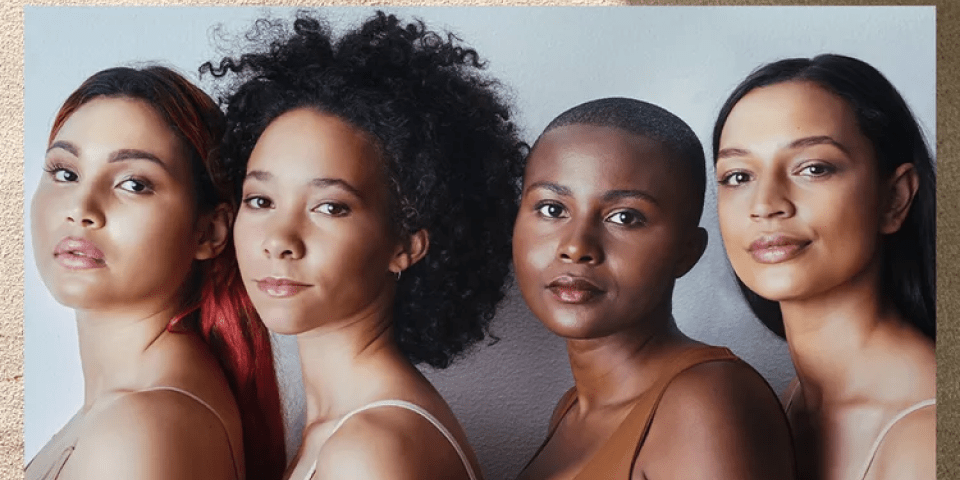Source: Byrdie
Before medications and treatments can be deemed safe and effective for the masses, they are rigorously studied in a process called clinical trials. During clinical trials, medical professionals move through four testing phases to evaluate how a new medical, surgical, or behavioral intervention performs in people. It goes without saying this method of clinical research is invaluable to human health.
However, a glaring issue has plagued clinical trials for decades: lack of diversity amongst participants. This year, a new study analyzed 230 US-based clinical trials with 219, 555 participants. Researchers found Black or African American, American Indian or Alaska Native, Hispanic or Latino people, and older adults were underrepresented. It’s also important to note members of the LGBTQ+ community, people living in rural or hard-to-reach geographies, native Americans or other indigenous populations, and global citizens are also underrepresented in medical research.
The lack of representation in clinical trials contributes to the current health disparities in the United States. And their predominant reliance on white patients underscores socio-economic and geographic divides in healthcare (more on that ahead). The long-standing issue has prompted some medical experts to find ways to reimagine the traditional practices of clinical trials and improve healthcare.
Enter: Jeeva Trials. Founded by Dr. Harsha Rajasimha, the technology platform is making clinical trials more accessible to diverse groups. Ahead, Dr. Rajasimha further unpacks the problems with clinical trials as they exist today and how technology is key to decentralizing them.
Why Have Clinical Trials Lacked Diversity?
If medications and treatments are intended to serve the general population (which is comprised of over 40% people of color), why isn’t diversity prioritized in these trials? Dr. Rajasimha says it’s partly due to clinical trials’ narrow lens of focus. “Because they’re focused on safety and efficacy, they want to recruit a sufficient number of patients so they can gather evidence,” he says. “For the FDA and regulators, all they are interested in seeing is if this drug is safe and if it helps patients better than the current standard of care does. Because of that focus, there is no ‘carrot or a stick’ with respect to diversity.”
The Jeeva CEO and founder says clinical trials have historically relied on referrals from physicians based in major metropolitan cities like Boston, Houston, and the Bay Area. In turn, they often end up referring predominantly Caucasian male patients from affluent backgrounds. Not only can limited racial diversity affect the quality of the trial, but relying solely on participants from major cities can also skew results.
What Is The Impact of Insufficient Diversity in Clinical Trials?
The impact of insufficient diversity in clinical trials is a two-fold issue. Studies have found that when people with diverse backgrounds are not adequately represented, treatments shown to be effective in trials may not be effective for all populations. Dr. Rajasimha says this is why focusing on diversity in clinical trials is critical from this point forward.
“It is significantly important because every individual may respond to the same drug, infection, or vaccine differently,” Rajasimha adds. “Reactions can depend on the individual’s traits such as genetics, body mass, body type, metabolism, etc. Hence, we must cover diversity during testing. Otherwise, it’s not good science, and we won’t have enough evidence that it will be safe and effective in the target general population.”
Additionally, chronic underrepresentation in clinical research contributes to the distrust in the medical establishment some minority groups feel. Researchers have specifically examined this line of thought amongst African American individuals. Their investigation found the historical lack of inclusion and decades of experience with medical maltreatment dating back to slavery may cause African Americans to be more hesitant to trust clinical research.
We must cover diversity during testing. Otherwise, it’s not good science.
How Is Jeeva Trials Providing a Solution?
Dr. Rajasimha’s platform, Jeeva Trials, strives to remediate many of these challenges by increasing opportunities for socio-economically and geographically diverse patients to participate in clinical trials. The company’s bring-your-own-device (BYOD) model is designed to accelerate remote patient recruitment by removing unnecessary barriers to clinical trial participation.
“If we enforce everyone have to use an Apple product or a Samsung product, that puts undue pressure on users of other devices to participate in the clinical trial,” Dr. Rajasimha says. “It can also increase the cost of the trial if the sponsor has to ship a hardware device to the patient’s homes. With Jeeva, patients can bring whichever device they may have.”
By finding creative solutions, Dr. Rajasimha says he has begun to see significant interest and traction in improving access to clinical studies for various patients. Subsequently, Jeeva Trials has also helped to reduce the logistical burden on study teams tasked with configuring studies. “Historically, it takes about 90 days to get a study fully configured and started. With Jeeva, you can do that in less than two weeks or a few days even.”
The highly flexible software is also designed to make the clinical trial experience more convenient and adaptable based on patient preferences, protocol requirements, and criteria. “In listening to over 2000 stakeholders of clinical trials—which included patients who participated in clinical trials, advocacy groups, regulatory agencies, and sponsors—what we heard is that they are very interested in technology, but the technology has to be user-friendly and simple,” he explains. “In the past, they have had to use a la carte tools. They have to use a tool for video conferencing, another tool for surveys, another tool for informed consent education, and so on. [Jeeva is] a single platform that brings all these pieces together in a clinical trial workflow.”


